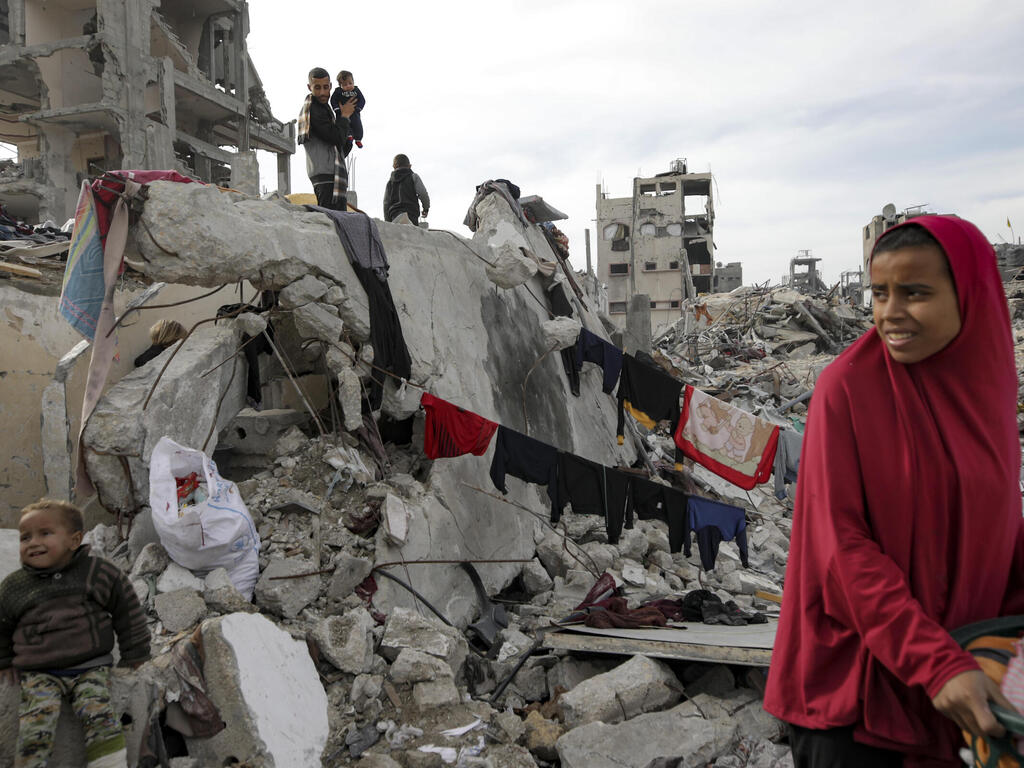Getting your Trinity Audio player ready...
Hamas said that it does not see a necessity to govern the Gaza Strip in the future, but the group made it clear that withdrawing from Gaza or disarming was not an option. Hamas spokesman Hazem Qassem told the Al Arabiya network late on Tuesday that the issue of governance in Gaza will be discussed in the second phase of negotiations, which are set to begin in the coming days. "Any future arrangement will be reached through national (Palestinian) consensus," Qassem added.
"There is no need for Hamas to be in Gaza's government in the future. We have made concessions regarding the future of governance, but we have every right to remain part of the political landscape," Qassem said.
In practice, it appears that Hamas is attempting to replicate Hezbollah’s model in Lebanon: the group would not assume civil control over the Strip or be responsible for the welfare and needs of its residents. Instead, it could focus its resources entirely on "resistance"—meaning preparations for war with Israel. Since Hamas remains the dominant military force in Gaza, it would dictate the reality on the ground, while civilian officials could effectively act as its proxies.
Get the Ynetnews app on your smartphone: Google Play: https://bit.ly/4eJ37pE | Apple App Store: https://bit.ly/3ZL7iNv
Meanwhile, the Hezbollah-affiliated Lebanese newspaper Al-Akhbar cited Egyptian sources claiming that "Israel has no desire to accelerate the pace of negotiations in the coming days." According to the report, Cairo perceives this as an attempt to maintain the current situation, in which aid shipments to Gaza remain restricted, slowing efforts to rebuild. There were also concerns in Egypt that Israel may renege on an agreement to allow caravans into Gaza on Thursday. According to the sources cited in Al-Akhbar, Israel's measures stem from a "desire to open the door for voluntary migration from Gaza and render the Strip uninhabitable."
Another report, in the Qatari newspaper Al-Araby Al-Jadeed, quoted different Egyptian sources who said that Cairo has been consulting with European Union representatives to establish a joint oversight mechanism for a temporary committee composed of independent Palestinian figures unaffiliated with Hamas, Fatah, or the Palestinian Authority. According to the report, this committee would manage Gaza under direct Egyptian supervision with European monitoring.
The sources told the newspaper that The Egyptian government had reached understandings with Hamas regarding its removal from all aspects of civilian and security governance in Gaza, and noted that Hamas had shown flexibility and cooperation.
Trucks carrying heavy machinery for Gaza at the Rafah border crossing
Such a committee could theoretically align with Israel’s demands, as outlined on Monday by Foreign Minister Gideon Sa’ar. The negotiations on the second phase of the agreement are expected to begin this week, led by Strategic Affairs Minister Ron Dermer, who will engage in talks with U.S. President Donald Trump's envoy, Steve Witkoff.
On Monday, Israeli officials emphasized that the requirements for the next phase include the demilitarization of Gaza. Additionally, Israel made clear that any form of Hamas, Fatah, or Palestinian Authority rule over the Strip would be unacceptable. "We will not agree to the continued presence of Hamas or any other terrorist organization in Gaza," Sa’ar said.






